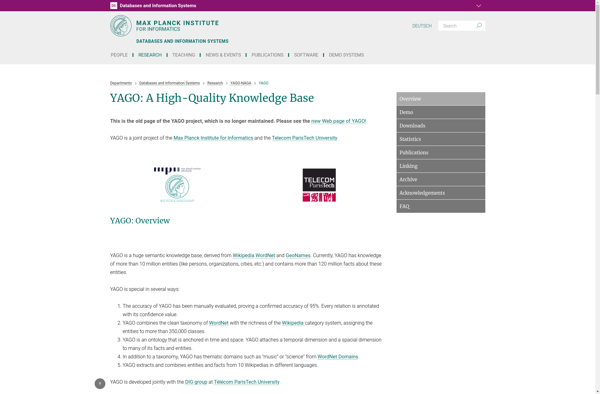Freebase
Freebase: Open Graph-Shaped Database of Facts
A knowledge sharing platform allowing users to contribute and link facts, organized in a graph-like structure similar to Wikipedia.
What is Freebase?
Freebase is an online graph database of structured data about real-world entities, events, and relationships. It was created by Metaweb and acquired by Google in 2010, before being shut down in 2016.
Some key aspects of Freebase include:
- It contained data on over 40 million topics, making it one of the largest online knowledge bases.
- The data was structured using an entity-relationship model allowing complex queries to extract specific information.
- It had typed links between different entities enabling data to be connected in meaningful ways.
- The database was editable by the public similarly to a wiki allowing anyone to contribute data.
- The site and API gave users free access to query and reuse the data in their own applications.
- Data formats included RDF allowing for integration with linked open data projects.
By organizing a vast trove of real-world knowledge and making it openly available, Freebase empowered new discovery and innovation using data and artificial intelligence. However, the closure of Freebase did impact some applications relying on it. Other open knowledge graphs have emerged subsequently such as Wikidata to continue the goal of structured data about the world.
Freebase Features
Features
- Open knowledge graph database
- Structured data about real-world entities and events
- Collaborative data collection and curation
- APIs for querying and accessing data
- Linked open data model to connect related facts
- Entity extraction from unstructured text
- Knowledge graph visualization
Pricing
- Open Source
Pros
Cons
Official Links
Reviews & Ratings
Login to ReviewThe Best Freebase Alternatives
Top Online Services and Knowledge Bases and other similar apps like Freebase
Here are some alternatives to Freebase:
Suggest an alternative ❐The Movie Database

Wikidata

YAGO
